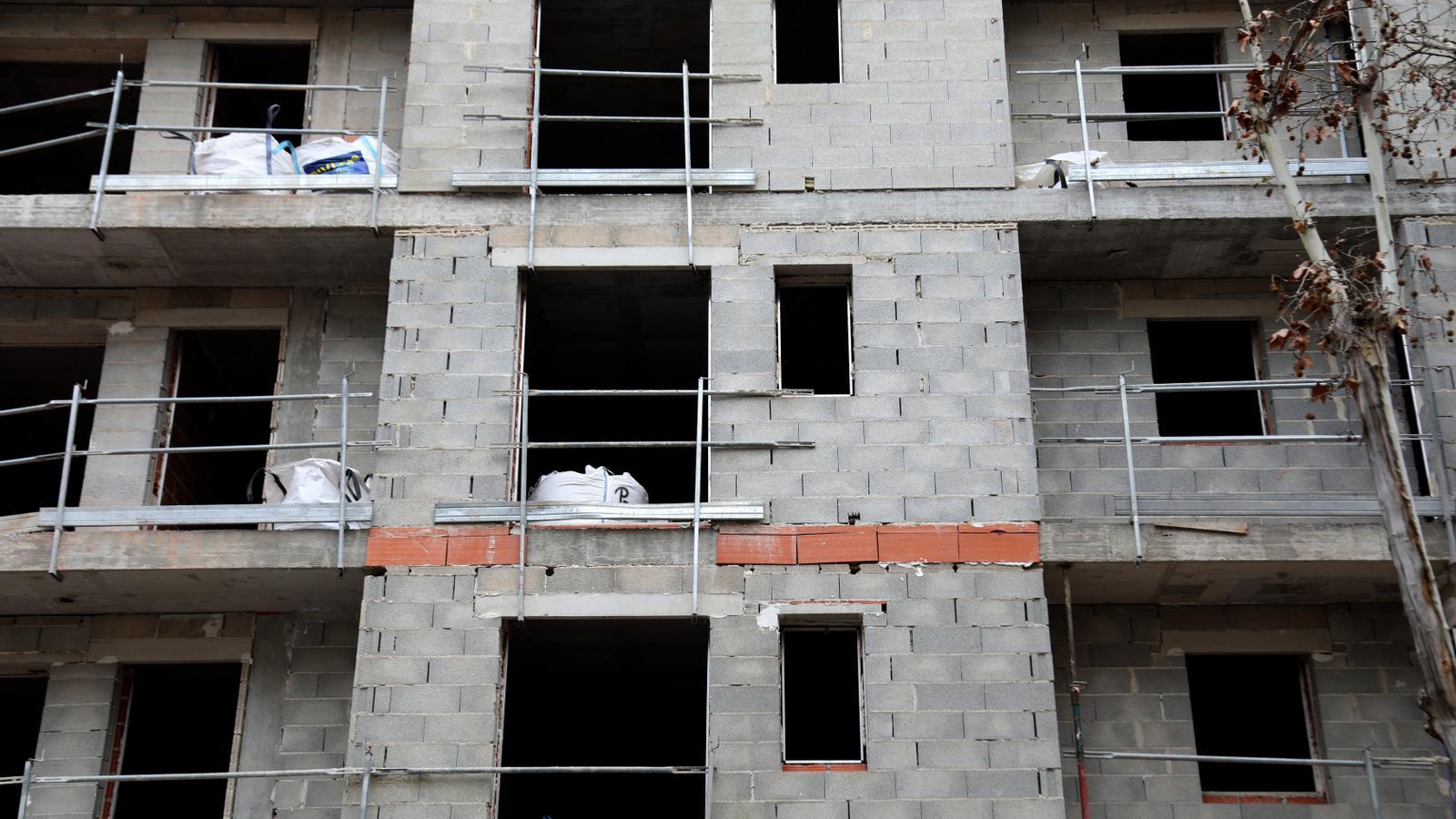Mallorca's surveyors defend the transition areas as "a positive measure, although not a short-term one."
With the modification of the urban planning law, the number of permits to build houses decreased.


Mallorcan quantity surveyors consider building in Transition Areas (TA), as provided for in the new urban planning legislation, to be a "positive" measure, although its effects "will not be seen in the short term," according to Luis Alfonso de León, president of the College of Quantity Surveyors and Technical Architects of Mallorca (COAAT), on Monday.
Alfonso explained that "during the first five months of this year, permits for housing construction were booming, but when the news broke that the law was being changed again, everything slowed down and ground to a halt, because everyone was waiting to see what changes would be made and how projects could be adapted." In his opinion, the activation of the transition areas "will be beneficial," although he clarified that "it won't be beneficial tomorrow, or the day after tomorrow," because "these are issues that need to be delayed over time. There has to be an urbanization process, and it will take a couple of years to see results," he added. One of the keys to facilitating the promotion of affordable housing is access to land at reasonable prices. "The dilemma is getting land at a cheap price; it's the only way to justify making the numbers work," he stated. "Today, the problem is that you build a luxury home and the profit percentage may be the same as a multi-family home, but for one you charge ten million euros and for the other you charge 300,000 euros," he noted. Control mechanisms are established. "We are in a market economy," he emphasized.
During the first half of 2025, the COAAT has approved 1,007 new homes, 2.13% more than the same period last year when there were 986. Of these homes, 482 were multi-family homes and 525 were single-family homes. This represents a 4.9% decrease in single-family homes compared to the first half of last year.
The municipalities with the highest number of approved construction projects for multi-family homes are Palma (266), Marratxí (93), and Capdepera (26). As for single-family homes, they are mainly concentrated in Palma (52), Marratxí (49), and Calvià (47).
Increase in renovations
In the first half of 2025, renovation permits for homes and other types of buildings increased by 13%. Between January and June of this year, 1,513 renovation projects were recorded (including extensions, among others). The president of the COAAT explained that this figure is "the highest in recent years," although he emphasized that "we remain to be seen whether this trend can be maintained in the coming months after the European grants for energy renovation expired on June 30th."
The end of the deadline for applying for these grants has contributed to accelerating renovation permits during the first half of the year. The COAAT renovation offices in Mallorca handled 1,325 inquiries and processed 324 applications for the grant, which, in total, have a subsidizable amount of almost €8.5 million.
On the other hand, in the first half of this year, hotel renovation permits have been halved compared to the same period in 2024. From January to July 2025, 20 hotels were renovated and no new ones were built.
